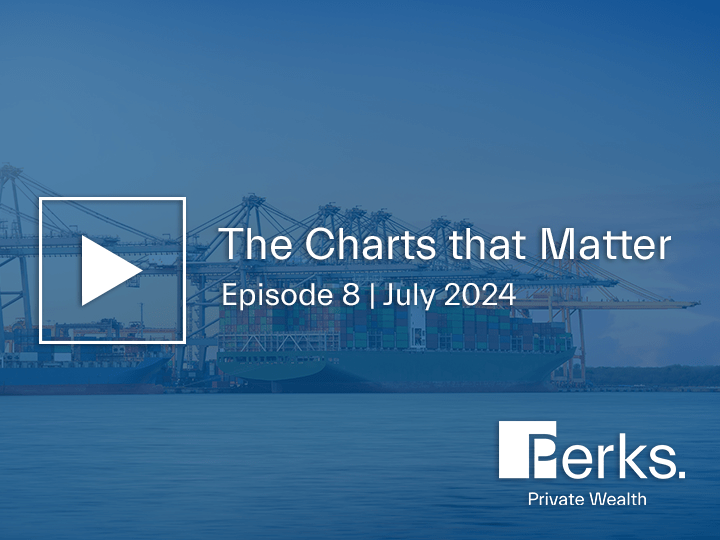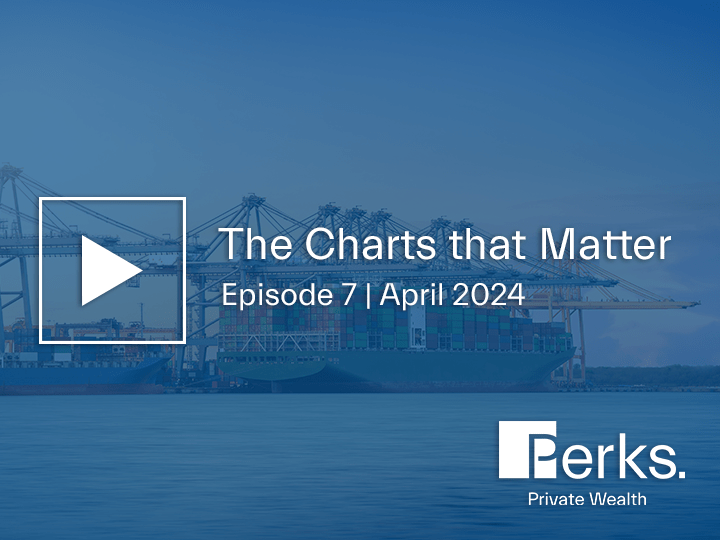
The 5 Golden Rules for Investing in a Low Growth Market
Maximise your private wealth potential.
After a year of strong gains in global share markets, market analysts are pointing to increased volatility and potentially lower returns in 2020. So, in an environment of low global economic growth, here are our top tips to maximising your private wealth management and achieving your financial goals in the current climate.
1. Prioritising growth will require taking on more riskIn a low-growth market, some investors may prioritise high-growth stocks in favour of those that would traditionally deliver stable, longer-term returns. It is important to note that although analysts forecast that equity returns are ahead of those for bonds, after a 10-year bull market they are at the low end of the historical range in absolute terms. A well-diversified portfolio of shares paying high and sustainable dividend yields can provide some security during volatile times. Also, stocks in defensive sectors such as utilities, health care and consumer goods tend to perform well when the economy is growing at a slower rate. This is because consumers continue to need their essential products and services. Just remember combating lower returns by allocating more to higher-yielding investments does entail taking on more risk. |
2. Rethink relying solely on Bonds for insurance in your wealth management portfolioTraditionally, the role of government bonds within an investment portfolio is to insure against equity losses from riskier asset classes. However, with current interest rates at all-time lows, 10-year government yields are historically low at 1.2%. This means that when yields are already very low, as they are in the current environment, there is simply less room for them to fall further. The outcome? In this environment, bonds don’t provide as much downside protection. That’s not to say that all bonds should be off the financial planning books in 2020, but you should be balancing them with other investment options. |
3. Consider investing in alternative "real" assetsFor those investors who prioritise long-term growth over liquidity, there are several property sub-sectors worth considering in the current climate. To add a layer of diversification to your portfolio, unlisted commercial property and infrastructure remain an attractive source of returns. For many, getting access to these kinds of assets requires a level of buy-in that is out of reach. However, there are ways around this that experienced and well-positioned wealth management firms can assist with. |
4. Stay close to international politicsGiven Trump’s preoccupation with equity market returns, asset prices could be boosted in the run-up to the 2020 US Presidential election in November. Also, global central banks (including the RBA) are expected to remain supportive and short-term interest rates will likely continue falling, supporting equity valuations. However, it is important to remember that the level of forecast returns for stocks today is still relatively low, especially when compared to the history of the past decade’s bull asset market. |
5. Measure your expectationsLow yields and constrained GDP growth indicate that it is not reasonable to expect the double-digit returns we saw last year, let alone high single-digit returns. Invest for the long term and focus on a long-term plan that suits your wealth, age & risk tolerance. As most investors knows, diversification is a key to insulating yourself against risk and providing yourself with the greatest opportunity for growth. In a low-growth market, you should aim for a portfolio that contains a range of different yield producing investments. This can include a mixture of equities, bonds and alternative investments such as real assets including unlisted property or infrastructure. Get your financial adviser to break down your options and risks. Getting the right investment advice can make all the difference in planning for your financial future, achieving your financial goals and maximising your private wealth potential. Perks Private Wealth advice and services are provided by Perks Private Wealth ABN 086 643 058, Australian Financial Services Licence No. 236 551. This document contains general advice and has been prepared without taking your personal circumstances into account. You should consider the appropriateness of it in light of your own personal circumstances. You should obtain and read the PDS and seek advice if necessary before acquiring any financial product. Please refer to our Compliance & Legal page for PPW’s FSG for contact information and information about remuneration and associations with product issuers. This information, including any assumptions and conclusions, is not intended to be a comprehensive statement of relevant practice or law that is often complex and can change. To the extent permitted by law, no liability is accepted for any loss or damage as a result of any reliance on this information. |
Read our Private Wealth Insights

The Charts that Matter | Investment Update | July 2024
30/7/2024
Private Wealth
Simon Hele recently spoke with Christo Hall to discuss our Investment Committee's key thoughts on the current...
Read more.

2024-25 Federal Budget Summary
15/5/2024
Tax
On May 14, 2024, Treasurer Jim Chalmers presented the Australian Federal Budget for 2024-25. This budget aims...
Read more.

The Charts that Matter | Investment Update | April 2024
18/4/2024
Private Wealth
Simon Hele recently spoke with Christo Hall to discuss our Investment Committee's key thoughts on the current...
Read more.
I want to speak with a private wealth adviser.
[contact-form-7 id=”3476″ title=”Contact form LP2019″]